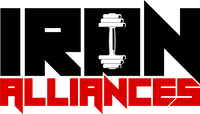
We’re often told that more is better — more sets, more reps, more intensity. But at some point, training harder without recovering smarter stops helping and starts hurting. If your progress has stalled or your motivation is tanking, you might be overtraining or under-recovering. Here’s how to tell.
Fatigue is normal after tough sessions, but chronic exhaustion — where even daily tasks feel draining — is a warning sign. If you're waking up tired or crashing midday despite getting enough sleep, your body may not be bouncing back between workouts.
Progress isn’t always linear, but if your lifts are regressing for multiple weeks, something’s off. Under-recovery compromises your nervous system and muscular output, especially in strength-focused training blocks.
Related: Why your lifts are getting weaker
DOMS (delayed onset muscle soreness) should fade within 48 hours. If you're always sore — especially in the same muscle groups — you're not recovering. This can blunt performance, limit range of motion, and increase injury risk.
Overtraining affects more than your muscles. It can drain your mental energy and affect mood. If you dread the gym, feel short-tempered, or have no drive to train, it may not be burnout — it might be under-recovery.
Ironically, training too hard can mess with your sleep — especially if cortisol (your stress hormone) remains elevated. If you're tossing and turning or waking up multiple times per night, your nervous system might be overstimulated.
Recovery isn't just about muscles — it includes immune function. Overreaching suppresses immune response. If you keep catching colds or feel run down, your training volume or intensity might be too high relative to your recovery ability.
Minor tweaks and tendon pain can worsen with overuse. If rest days aren’t helping and you're dealing with the same aches week after week, your body’s asking for more recovery — not more work.
Lower volume and intensity for 5–7 days. This allows your joints, nervous system, and connective tissue to rebound. Learn more in our post on when to take a deload week.
Sleep is your #1 recovery tool. Aim for 7–9 hours per night. Protein and calorie intake should also match your training demand. Review our guide on protein needs.
Quality matters more than quantity. Make sure your program includes rest days, variation, and proper periodization. A coach can help you adjust intelligently.
According to this 2019 study on overtraining and recovery, long-term fatigue and performance decline are signs of excessive training stress without recovery management.
At Iron Alliances, we connect you with coaches who balance stress and recovery — so you grow without burning out.
If you’ve trained hard for 6–8 weeks and feel flat, demotivated, or beat up, it’s a good time for a deload.
Yes. Soreness is not a requirement for growth. Proper volume and recovery matter more.
Overreaching is short-term and reversible. Overtraining is chronic and harder to fix. It includes physical, hormonal, and psychological symptoms.